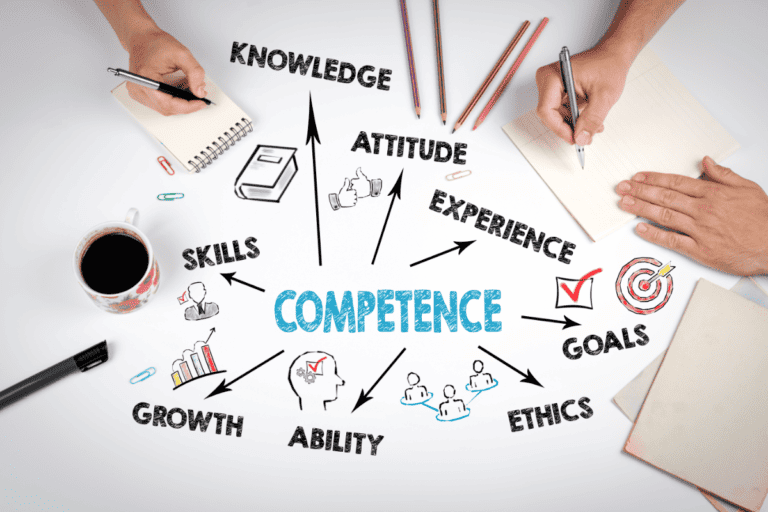Strategic Time Management Skills
In today's fast-paced and competitive work environment, possessing strong strategic time management skills is crucial for personal and professional success. Effective time management enables individuals to prioritize tasks, allocate resources efficiently, set and achieve goals, and overcome procrastination.
By implementing strategic time management tools and techniques, individuals can enhance their productivity and effectiveness. This discussion will explore the key components of strategic time management and provide practical insights for improving these essential skills in a professional context.
Key Takeaways
- Effective delegation optimizes productivity and empowers employees.
- Prioritizing tasks and setting clear goals enhances productivity.
- Utilizing technology streamlines processes and allocates resources effectively.
- Adhering to a well-structured schedule prevents procrastination.
Importance of Strategic Time Management
The importance of strategic time management cannot be overstated in today's fast-paced and competitive business environment. Effective delegation is a key time-saving technique that allows businesses to optimize productivity and achieve better results. Delegating tasks to the right individuals not only frees up time for managers to focus on high-priority assignments but also empowers employees to take ownership of their responsibilities, fostering a more efficient and collaborative work environment.
In addition to delegation, implementing time-saving techniques such as prioritizing tasks, setting clear goals, and utilizing technology can significantly enhance productivity. By identifying and addressing time-wasting activities, businesses can streamline their processes and allocate resources more effectively. Furthermore, establishing a well-structured schedule and adhering to it can prevent procrastination and ensure that time is utilized efficiently.
Strategic time management not only benefits the organization as a whole but also contributes to individual professional development. Employees who effectively manage their time are better equipped to handle challenging tasks, meet deadlines, and maintain a healthy work-life balance. Ultimately, by prioritizing strategic time management, businesses can gain a competitive edge in today's dynamic market landscape.
Setting Clear Priorities
Setting clear priorities is essential for effective time management and productivity in any professional setting. Clear communication of priorities ensures that team members are aligned with organizational goals and understand which tasks are most critical. Efficient decision making is facilitated when priorities are well-defined, enabling professionals to allocate time and resources appropriately. This clarity also allows for effective task delegation, as managers can assign responsibilities based on established priorities, leading to a more streamlined workflow.
In addition to clear communication and task delegation, time tracking is crucial for setting and maintaining clear priorities. By monitoring the time spent on various tasks, professionals can assess whether their efforts align with the established priorities. This information can guide adjustments in task allocation and inform future decision making. Moreover, time tracking provides valuable insights into productivity and helps identify areas where improvements can be made.
Efficient Resource Allocation

Efficient resource allocation is essential for effective time management.
Prioritizing tasks effectively, implementing time blocking strategies, and allocating energy wisely are key components of efficient resource allocation.
Prioritizing Tasks Effectively
In the realm of time management, prioritizing tasks effectively is a critical skill that allows for efficient allocation of resources. Effective task prioritization ensures that the most important and urgent tasks are tackled first, maximizing productivity and minimizing time wastage. By employing time optimization techniques, individuals can enhance their ability to prioritize tasks effectively, leading to improved efficiency and reduced stress. Below is a table outlining some popular time optimization techniques:
| Time Optimization Techniques | Description |
|---|---|
| Pareto Principle | Focus on the 20% of tasks that yield 80% of the results. |
| Eisenhower Matrix | Categorize tasks into urgent, important, non-urgent, and non-important. |
| Time Blocking | Allocate specific time slots for different tasks to enhance focus. |
| Task Batching | Group similar tasks together to minimize transition time. |
| Pomodoro Technique | Work in focused intervals with short breaks to maintain productivity. |
Prioritizing tasks effectively through these techniques allows individuals to make the best use of their time and resources.
Time Blocking Strategies
What strategies can be employed to effectively allocate resources through the implementation of time blocking techniques?
Time blocking is a powerful time management technique that involves scheduling specific blocks of time for different tasks. To maximize its benefits, consider these productivity tips.
- First, allocate time for your most important tasks during your peak productivity hours. This ensures that your focused work aligns with your energy levels.
- Secondly, use time blocking to create a structured routine, allowing for better organization and predictability in your schedule.
- Additionally, incorporate regular breaks within your time blocks to maintain energy and focus.
- Lastly, be flexible and open to adjusting your time blocks as needed.
Allocating Energy Wisely
Wisely allocating energy is crucial for maximizing productivity and maintaining focus throughout the day. Energy optimization involves identifying peak energy levels and scheduling high-priority tasks during these times. This ensures that critical work is completed when energy levels are at their highest, leading to enhanced productivity.
Additionally, allocating energy wisely involves taking regular breaks to prevent burnout and maintain overall energy levels. By incorporating short breaks for relaxation or physical activity, individuals can recharge and sustain their energy throughout the day, ultimately leading to improved productivity.
Moreover, allocating energy wisely also involves recognizing and minimizing energy-draining activities or distractions, allowing individuals to focus their energy on tasks that contribute to their overall goals.
Effective energy allocation is a cornerstone of productivity enhancement and should be a key focus in any time management strategy.
Goal Setting and Time Planning

Effective time management begins with setting clear and achievable goals and creating a well-structured plan to allocate time towards their accomplishment. Goal setting is crucial for guiding an individual or organization towards success. It provides a clear direction, motivates action, and helps in evaluating progress. To enhance productivity, goals should be specific, measurable, attainable, relevant, and time-bound (SMART).
When setting goals, it is important to consider the resources available, potential obstacles, and the timeline for achievement. Once the goals are established, the next step is to plan how time will be allocated to work towards them. This involves breaking down the goals into smaller tasks, assigning realistic deadlines, and prioritizing activities based on their importance and urgency. Time planning ensures that each goal receives the necessary attention and progress is made consistently. Additionally, it helps in identifying potential bottlenecks and finding opportunities to optimize the use of time.
Overcoming Procrastination
To overcome procrastination, individuals must develop self-discipline and cultivate a proactive approach to task management. Procrastination triggers, such as fear of failure, lack of motivation, and feeling overwhelmed, can be addressed through the following solutions:
- Breaking tasks into smaller steps: By breaking down tasks into manageable parts, individuals can reduce feelings of being overwhelmed and increase their motivation to start and complete the work.
- Setting specific and achievable goals: Establishing clear and achievable goals provides a sense of direction and purpose, helping individuals stay focused and motivated to tackle their tasks.
- Creating a structured schedule: Developing a structured schedule with designated time slots for different tasks can help individuals stay organized and committed to completing their work.
Procrastination can have a significant impact on productivity, causing missed deadlines, increased stress, and a decline in the quality of work. The consequences of procrastination highlight the importance of implementing effective strategies to overcome this habit and improve time management skills.
Implementing Time Management Tools

Implementing time management tools is essential for enhancing productivity and optimizing the allocation of resources in both professional and personal endeavors. Two critical components of time management tools are task tracking and time tracking. Task tracking involves monitoring the progress of various activities and ensuring that they are completed within the set deadlines. This can be achieved through tools such as to-do lists, project management software, and kanban boards. On the other hand, time tracking involves monitoring the time spent on different tasks to identify patterns, eliminate time-wasting activities, and improve efficiency. Time tracking tools include timesheets, time tracking apps, and Pomodoro timers.
The table below provides a comparison of task tracking and time tracking tools:
| Task Tracking Tools | Time Tracking Tools |
|---|---|
| To-do lists | Timesheets |
| Project management software | Time tracking apps |
| Kanban boards | Pomodoro timers |
| Calendar apps | Automated time tracking software |
| Note-taking apps | Time tracking integrations with project management tools |
Conclusion
In conclusion, mastering strategic time management skills is essential for success. By setting clear priorities, efficiently allocating resources, and setting specific goals, individuals can overcome procrastination and maximize productivity.
Implementing time management tools can further enhance their ability to manage time effectively.
Overall, strategic time management is the key to seizing success and achieving aspirations.







